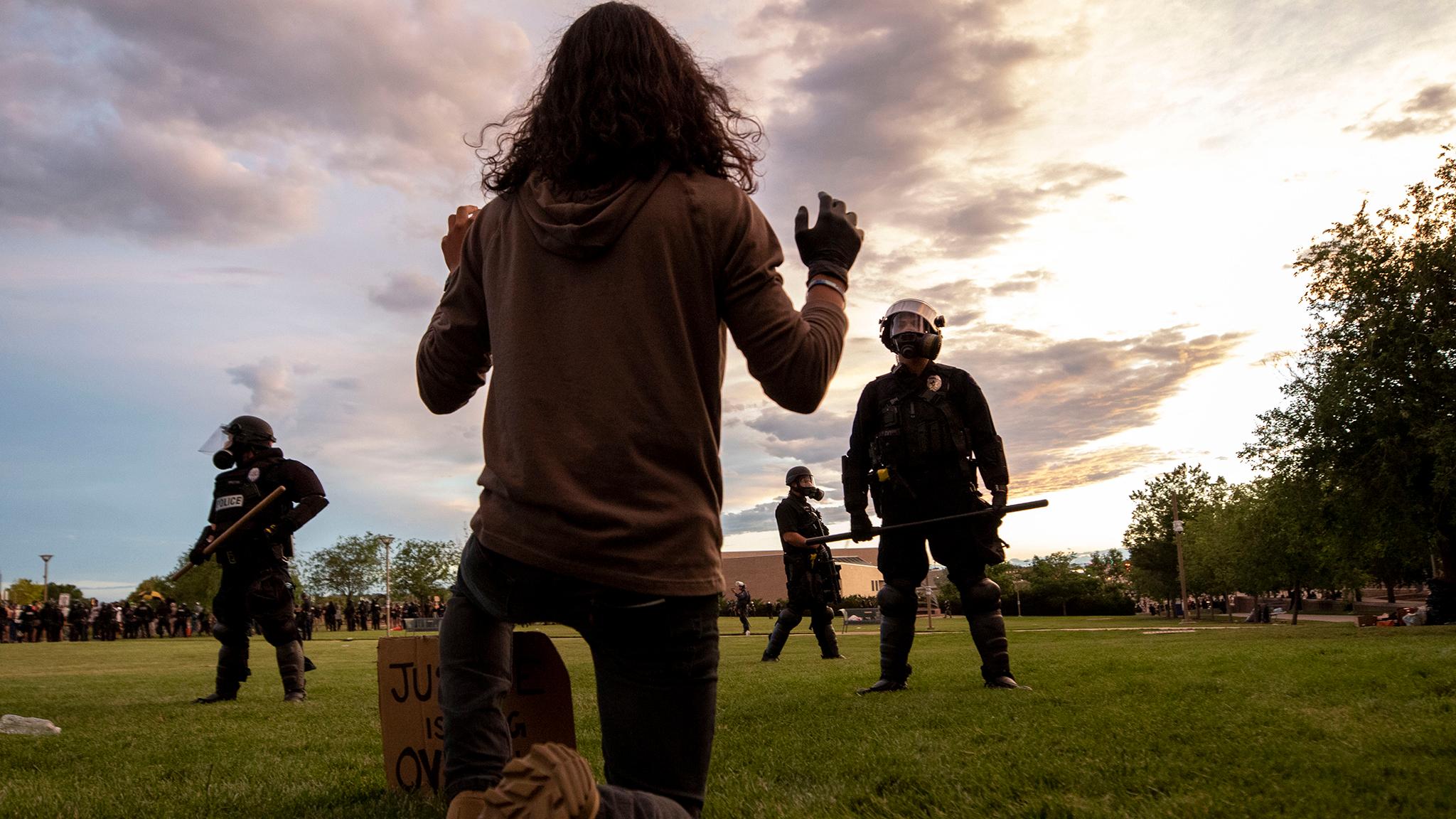Monday should have been a celebratory day in Aurora. During its regular meeting, City Council picked Vanessa Wilson as the new police chief, the first woman to assume that role in the city's history.
But Wilson, who'd been interim chief since January, spent Monday apologizing for yet another incident involving an officer that drew the ire of the community.
On Sunday, a video surfaced showing Aurora officers detaining and drawing their guns on a Black family, including a six-year-old girl wearing a pink crown, and forcing them to the ground. The officers had mistakenly targeted the family's car, an SUV, as a stolen vehicle, which was in fact a motorcycle.
Wilson said officers didn't verify the license correctly when they decided to stop the family and detain them. She said the responding officer's tactics should have been different considering children were involved.
During an interview with Denverite, Wilson called what happened on Sunday a "huge mistake."
"Obviously, we have another incident where the community is angry, the nation is angry," she said. "It should have never happened. We need to do better. That's the bottom line. We need to do better now."
The Aurora Police Department has faced numerous high-profile incidents over the last year, from a cop who was drunk on the job and able to stay on the force due to a mishandled probe, to the uproar and calls for accountability over the death of Elijah McClain, the criticism over police response to McClain demonstrations, and the officers who were fired this summer after photos surfaced of them playfully re-enacting the carotid hold used on McClain.
"Certainly, in the metro area, it seems to stand out for sure," said ACLU of Colorado Public Policy Director Denise Maes about the Aurora Police Department. "And it's constant. It's just constant. It's almost every week or something, or on a very, very frequent basis."
Wilson acknowledged the family involved in the latest incident is likely traumatized. She questioned whether the kids involved would ever trust police.
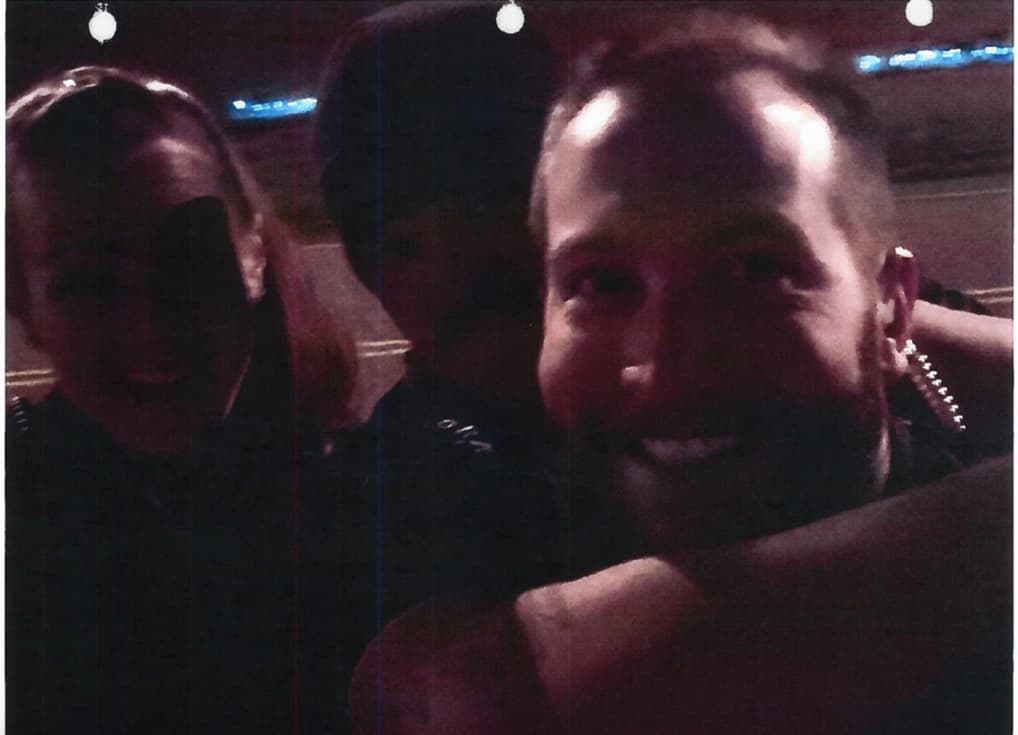
Wilson admitted the department is far from the days when it was considered the gold standard among agencies. When officers were called heroes for their actions during the 2012 theater shooting when some of them put gunshot victims in their patrol cars to take them to the hospital.
She acknowledged that the calls for accountability in law enforcement and de-funding the police are not dying down.
"I just need the community to give me a chance, to keep moving us forward," Wilson said. "I think I've made some progress, but so much more progress needs to be made."
Maes said the department seems to have a "serious problem" with the way it has treated people of color.
The ACLU created a map in 2018 showing 13 cases of police use of force, some of them deadly, against people of color in the city dating back to 2003.
"It does stand out, because there are so many, and there are so many that involve individuals of color," she said.
The organization sued the city in 2018 on behalf of Alberto Torres, a Latino man and name on the ACLU's map.
According to the lawsuit, filed in federal court, Torres was working on his car in his garage when Aurora police officers Ethan Yazdani and Reginald DePass told him to leave the garage, threatening him with jail. According to the lawsuit, Torres paused before complying with the order, leading Yazdani to twist Torres' arm behind his back, lift him and slam him on the ground. The slamming continued even after Torres had been handcuffed; he repeatedly screamed in pain during the incident, according to the lawsuit. An investigation by Aurora police found no wrongdoing by the officers, but the Denver Post reported the investigation was done by a sergeant who had responded to Torres' garage when the incident happened.
"Over the past few years, Aurora officers have customarily utilized objectively unreasonable force against people of color engaged in at most minor misconduct (e.g., a noise violation), often injuring and sometimes killing them," the lawsuit read.
Another case on that map involved Aurora police Sgt. Charles DeShazer, who while working as an off-duty security guard in June 2006 allegedly attacked 12-year-old Cassidy Tate. The city later settled with Tate for $175,000 after she sued.
DeShazer was fired in 2017 after he was caught on video using the term "Alabama Porch Monkeys" following an officer-involved shooting, but he was reinstated the following year after successfully appealing. He was also accused of using racial slurs during the alleged attack on Tate. He remains on the force. An Aurora police spokesperson said over email DeShazer reviews and approves electronic accident reports, a position that does not put him in contact with the public.
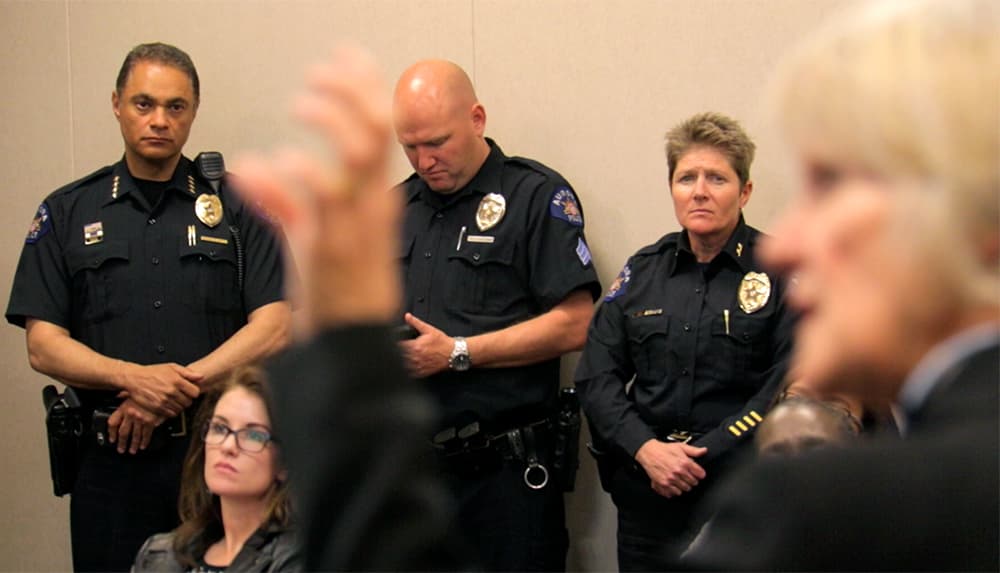
Wilson said she shares the frustration felt by Aurora residents and people around the country who saw the video of the Black family detained this week. Other cops in the department are just as angry and dismayed about what happened on Sunday, she said.
"They're like, what were they thinking?" Wilson said.
Aurora NAACP chapter president Omar Montgomery's optimism about Wilson is sprinkled with caution. He's been calling for reforming the police department and creating systematic change for years. Montgomery is on the Community Police Task Force in Aurora, a civilian group responsible for making recommendations to change department policies.
Wilson's hiring may produce some change in the city, he said, and the new chief is a "good partner" with his organization. He said there are police doing "heroes" work for serious crimes, such as human trafficking. Yet there are also cops like those involved in Sunday's incident who thought it was appropriate to force a six-year-old to lie face down on hot concrete, Montgomery said. He called their response an example of cops following department policy over "common sense policing."
He said he's taken calls from people across the country asking what exactly is going on with the Aurora police department. His optimism is waning.
"Every time I am trying to get to that point, I am let down by another incident," Montgomery said.
Wilson said she can't point to either a specific or larger culture problem in the department. Calling herself "a change agent," she said the work starts by responding to a "call to action from the nation." That process would included working with the Community Police Task Force.
"I need to listen to the community, and I need to implement the things that they're asking for," Wilson said.
Police need to get back to understanding that they work for the people, Wilson said. Officers need to listen to how people want to be policed, which to her means changing how officers are trained and having frank conversations with officers about what's acceptable and what it isn't. The way she sees it, that can help a cop understand when it's time to intervene and say, "this is wrong."
Activists and residents have ideas for changes. Wilson pointed to some she's implemented.
She banned carotid control holds (the City Council is working to fully codify the ban so it's written in city law), changed how cops respond to suspicious person report by letting officers decided whether the person needs to be contacted rather than requiring it, and instituted a duty-to-intervene rule for officers who see any wrongdoing from their colleagues.
Maes suggested there's a lack of discipline for cops in Aurora, though she commended Wilson for firing the three police officers who mocked McClain. Wilson has fired seven cops and one recruit since she took over as interim chief. The last firing was made public late Tuesday when the department issued a statement about Officer Javen Harper, who came to work drunk last October.
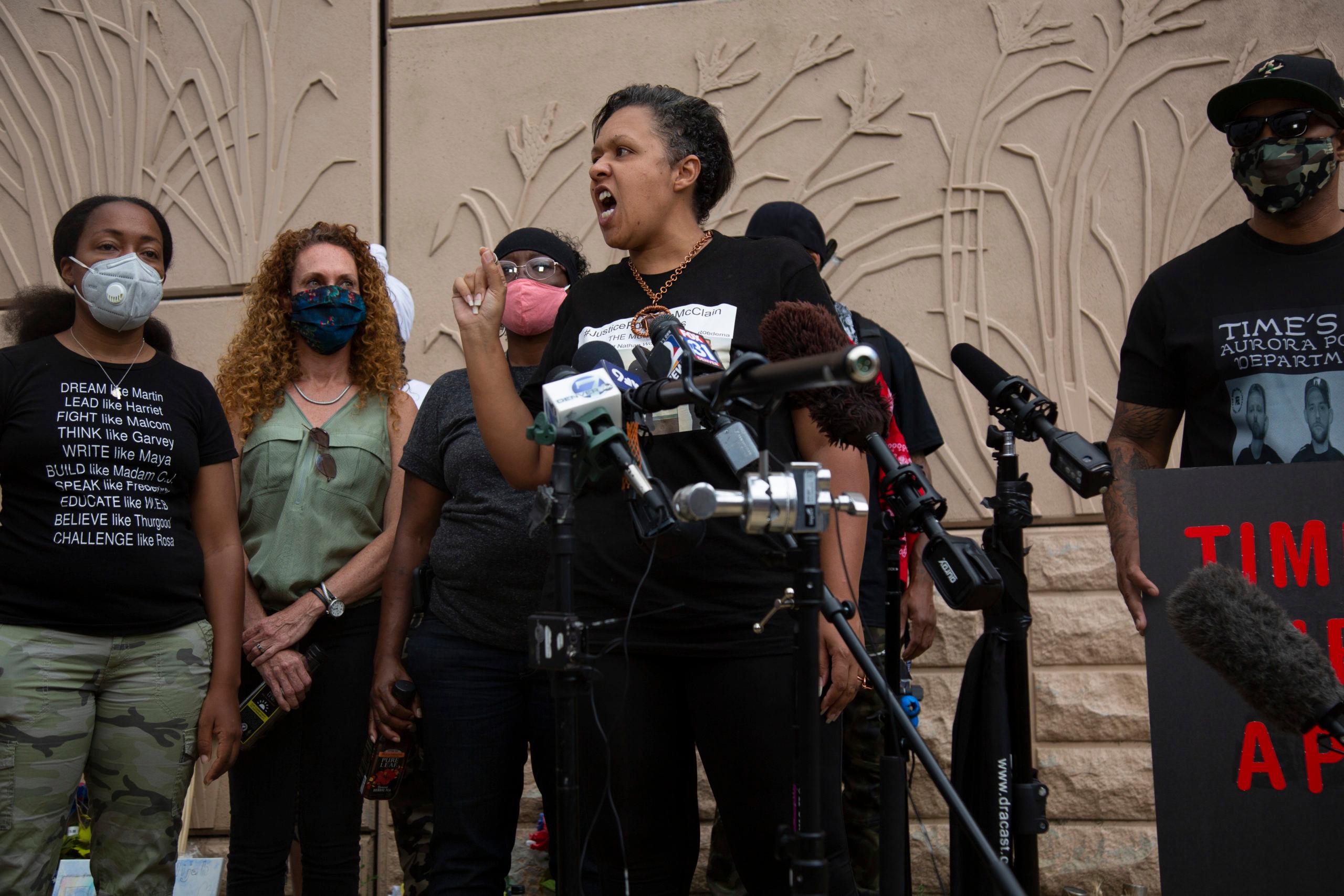
"Maybe that's different if that is consistent," Maes said. "I would say that up until recently, there hasn't been much disciplinary action."
Candice Bailey, co-founder of Frontline Party for Revolutionary Action, has been a familiar face at McClain demonstrations. Since Wilson was appointed, Bailey said she's heard from everyone from white professionals to gang members to unhoused neighbors, and the messages about the new chief have been mixed. Many have said they feel hurt by the department.
"Some people were super-pissed," Bailey said. "A lot of people really felt really upset, especially given the height of some of the things that have happened in the city over the past few months."
Bailey acknowledged Wilson has made changes. But she said Wilson's tenure has brought an "unprecedented " level of harm to the community.
Unlike Montgomery, Bailey's not to quire ready to use the o-word.
"I think that's what we're looking at, for as good as she can be for some of the good things she's done, was it a performative act?" Bailey said. "I don't know. I can't tell you that."
Bailey's demands include firing and arresting the officers involved in McClain's death. Montgomery wants to improve racial diversity among the department's top brass and those who serve on the Civil Service Commission, which hires officers and oversees disciplinary appeals.
"It's always like you're getting a new video," Montgomery said. "I am extremely frustrated. (I'm) exhausted, and I want to see expedited change."
Recent demonstrations have made it hard to recruit new officers, Wilson said.
Recruiting more people of color to serve the most diverse city in Colorado is a focus of Wilson's, but that's tricky at the moment. She noted the last recruit class was "very diverse."
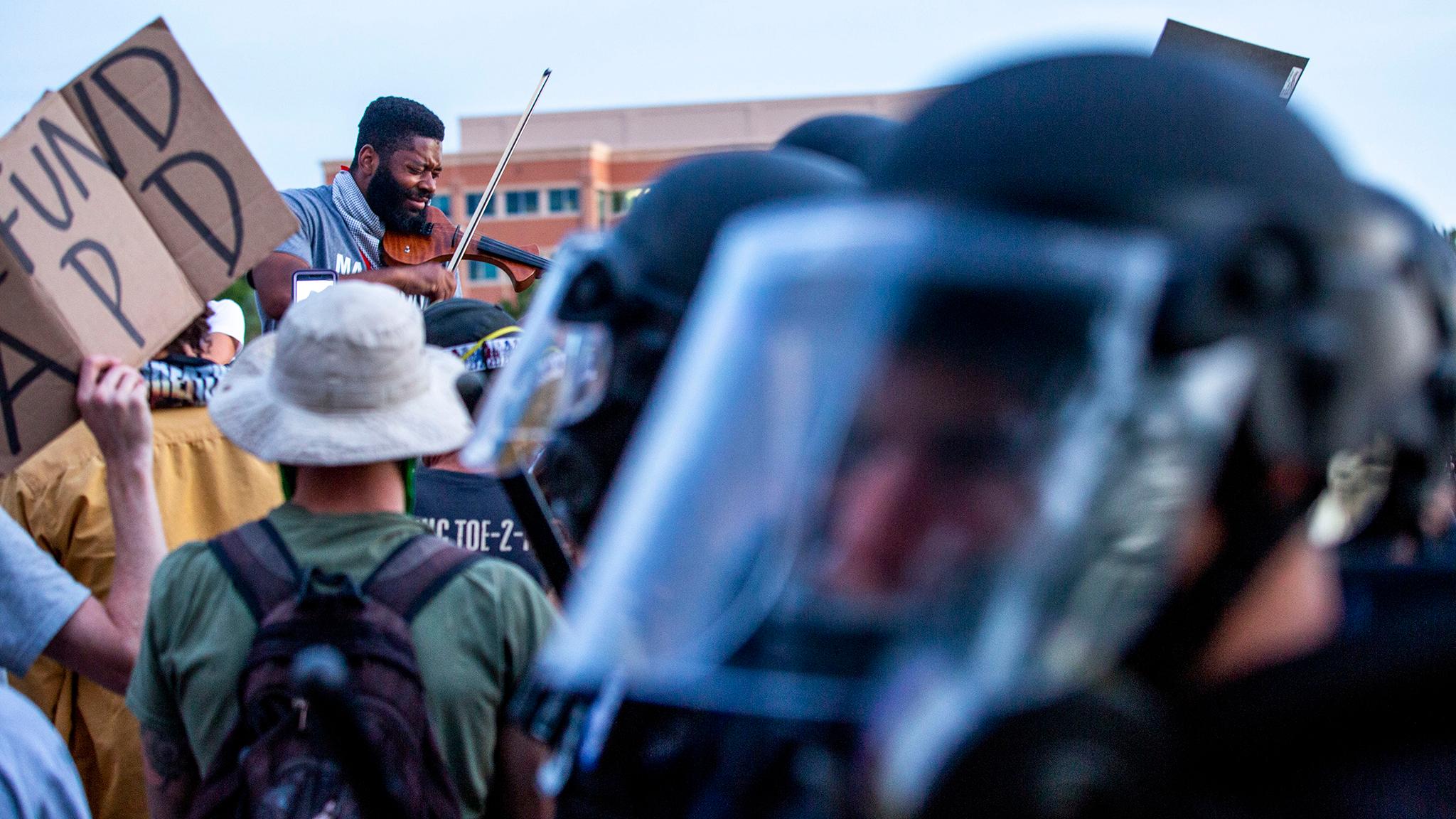
Wilson wants to bring back a board interview, conducted by officers and trainers, that the department got rid of some years ago. But she would include civilians on the board, a change that would need to be approved by the Civil Service Commission.
Even though she hasn't been sworn in yet, Wilson knows time is not on her and her department's side.
"There are no more chances for us," Wilson said. "I really feel as though the community has had enough, and I've personally had enough."

